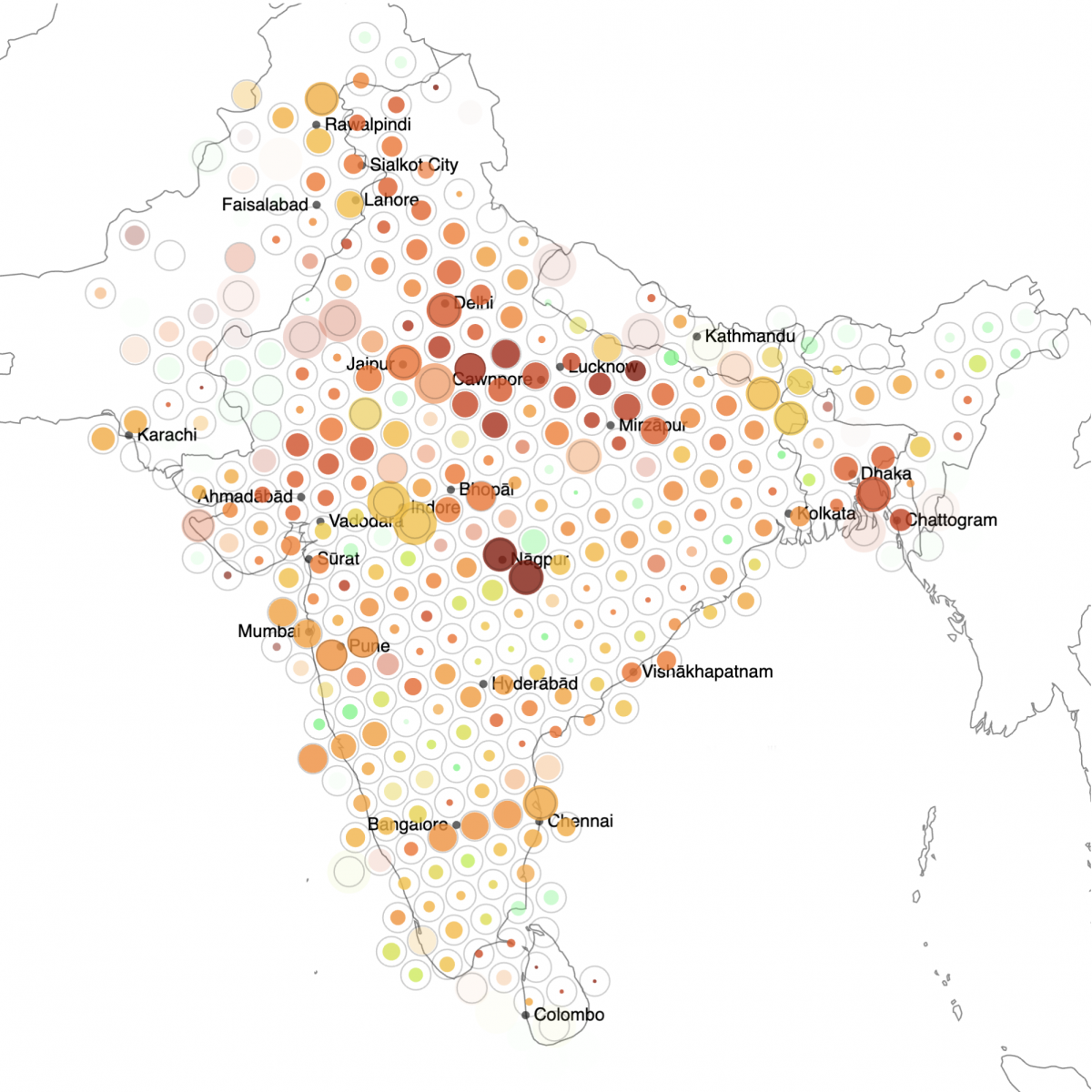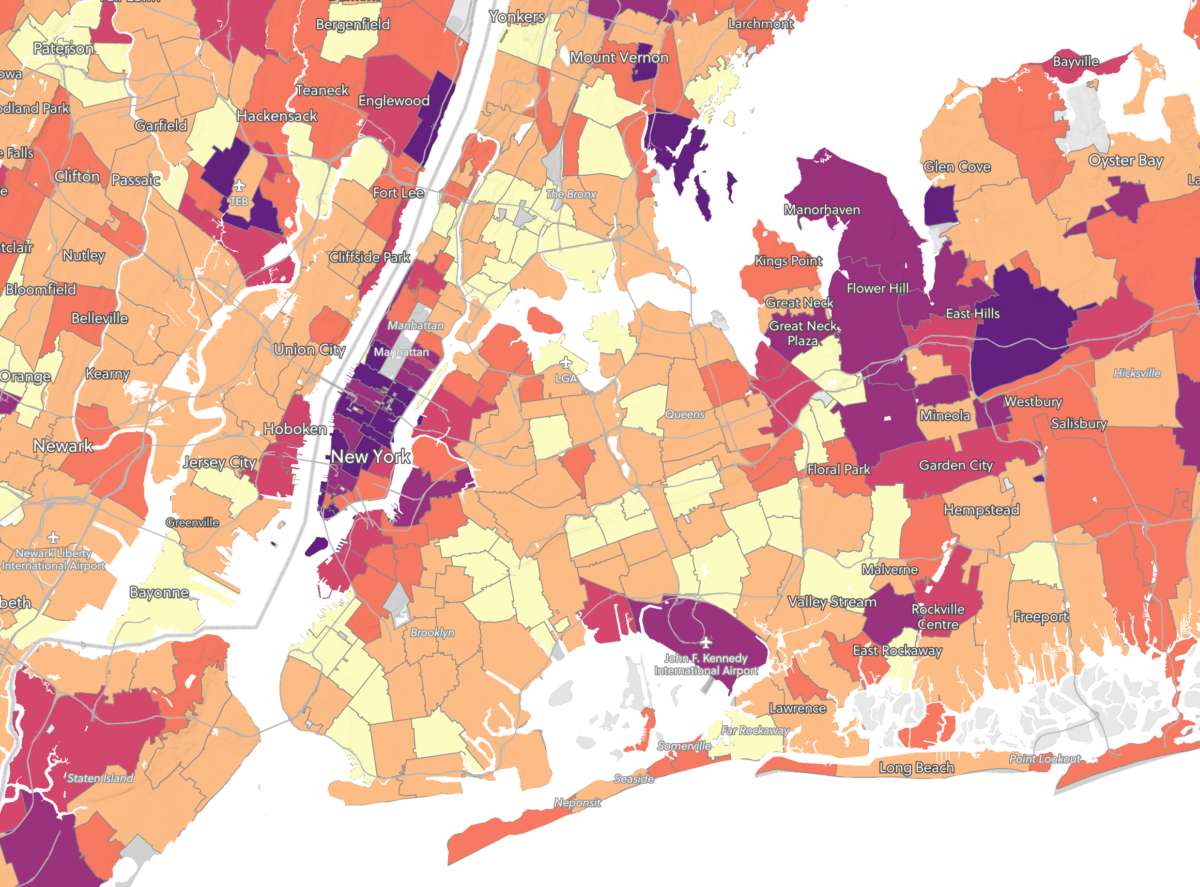Monitoring And Debunking COVID-19 Panic: The "Haarlem Aldi" Hoax
Panicked responses to COVID-19 have triggered strange, yet predictable behavior from people all around the world as they attempt to protect themselves and their families. Some of the most common images and videos circulating on the internet show emptied grocery stores, huge lines at checkout counters, and by now the all-too-familiar disappearing toilet paper. In an attempt to stock up before quarantining, people around the world are flooding their grocery stores and taking whatever it is that they deem necessary for survival.
However, this practice is actively being dissuaded by governments whose representatives are repeating that there is and will be enough stock in grocery stores throughout this crisis. By hoarding items, people are really keeping others from being able to purchase them as needed (those who are actually running low on toilet paper at home might be getting worried right about now!).
This morning, Chantal Verkroost, a Bellingcat staffer working in the Netherlands, received a WhatsApp message from a friend, sharing a video. The friend claimed that the video was taken in Haarlem, a city neighboring Amsterdam. In it, there was a swarm of people outside an Aldi, a grocery store chain, fighting to enter the store all at once. Presumably, this video was supposed to show the huge numbers of people rushing to purchase items due to COVID-19, as in so many other videos we have seen in recent days.
However, the numbers in this particular video are extreme. A video like this could incite mass panic — as people may then think that they need to run to their local store immediately.
Knowing how relatively calm the situation has been here in the Netherlands (especially in Haarlem, where there is one reported case), we at Bellingcat felt that the video was likely fake — and set out to prove it.
Debunking The Claims
We began with determining some identifying features in the video that might immediately prove our suspicions. By looking closely, we determined that there was German writing on the advertisement in the window and that it was next to another store front, with the letters “F.B.I” clearly visible.
The German writing led us to believe that the store was in Germany, not in the Netherlands. Assuming this, we started searching for “F.B.I” and the German word for store, “laden”.
In what was a much needed humorous turn of events, this led us to results about Osama bin Laden and the Federal Bureau of Investigation, not anything close to what we had been hoping for. Ah, the joys of internet searches.
Following this hilarious outcome, we changed laden for another German word for store, “geschäft”, and repeated our search. The results included some inevitable images related to the Federal Bureau of Investigation, but after scrolling down a bit, we recognized the logo from the video and found the website for a store called Friseure Bringen Ideen.
This store, a German hairdresser chain, has just six locations across Germany. Conveniently, their website also showed pictures of all of these locations. When looking at the six images of the locations, three clearly didn’t match the look of the store in the video and were dismissed immediately. For the other three, we searched for photos on Google Maps, as well as Aldi stores in the same location.
We looked at images of the Aldi in Kiel and immediately noticed matching identifying features. These included its positioning, the “F.B.I.” sign, the window panes, and the glass doors with the metal around them. Below, you can see a comparison of the images from Google Maps and the video.
However, the “F.B.I.” on this photo, dated from October 2019, differed from the logo in the video, suggesting that either the storefront had changed in the last five months, or that the video was shot some time earlier. Determining this could help us figure out whether any of this is at all related to COVID-19.
With that in mind, we began looking at other changes, including the change in the Aldi logo. In the October 2019 picture, the Aldi logo has lost the word “markt”, while in an earlier photo from February 2018, and in the video, the word “markt” is still there.
Now we were certain that the video was not taken in Haarlem and we were also pretty convinced that the video was taken at least a year ago, definitely before the COVID-19 panic struck.
Even after debunking the main claims associated with the video, we wanted to determine when the event depicted in it actually took place and how many people this viral claim had reached.
How Far Had This Gone? Thinking Like A Hoaxer Would
Chantal received this video in an WhatsApp chat, but we wanted to know how many other people had been fed the same claim about this event having taken place in Haarlem. Had this gone viral before it landed in Chantal’s WhatsApp?
In order to do this, we started to think like a hoaxer would — how would someone present this video online trying to tell people that it was pandemic panic?
We searched Twitter through TweetDeck, filtering for tweets that contained videos, and searching for “aldi AND corona”. Eventually, we came across this tweet that shared the exact same video, except for the fact that they had a TikTok logo in the corner and the TikTok username below it, “@ihanaids”.
We looked for this username on TikTok and found the video, which had gone viral:
It was posted on February 28, 2020 with over four million views, 3,000 likes, and 10,000 comments. The caption claimed that it was taken on that same date in Herthen, Germany and that the event depicted in the video was triggered by the coronavirus.
The numbers on this video were shocking, given how little we were seeing pop up about it elsewhere, such as on Twitter or Facebook. It seems to have gone viral through TikTok alone, speaking to the great power of this social media app.
Having debunked the video and figured out more about its impact, we moved on to our final step — trying to find the original source.
Finding The Original Video
We reverse image searched a still from the video and quickly found some older videos, including one from 2016:
We had an even earlier possible date, but wanted to keep looking to see if we could find something before 2016.
Quickly, we realized that others had also noticed that the video was fake. The tweet that had reposted the TikTok video above replied to their own tweet, admitting that it was fake news.
Another user also claimed the tweet was fake news and linked the original Youtube video, from 2011, with the correct location that we had determined independently. In the video’s description, the uploader added that the video has nothing to do with the coronavirus, an obvious recent addition to said description.
This is the earliest version of this video that we found, dating back to 2011, when there was a special sale going on in the store and an overexcited crowd swarmed in.
What Now?
Many things about the COVID-19 crisis make us feel helpless. Some respond to this by rushing into grocery stores and stocking up. Others are staying home, close to their loved ones, and choosing to do what they can to maintain control over their own situation. There may be a lot that we still don’t know and it feels that we are relying on every bit of news to inform us about our fates and how our day-to-day lives may further be impacted. This fear creates an opportunity for people to capitalize on the desperate feelings of fellow human beings and spread hysteria through disinformation.
The people TikTok seems to be aware of how their app is being used to spread panic and disinformation around this topic. Below the viral video, they placed a link entitled “Learn the facts about COVID-19” and on the page for the hashtag, #coronavirus, they have placed warnings about where to receive trusted information. However, these videos will still spread and will still have an impact. This is evidenced by the simple fact that Chantal received the video from a friend this morning. The friend had herself received it in her work group chat, with claims that the video was from today in The Netherlands.
Throughout the coming weeks, we only expect the fake content surrounding this topic to escalate. Now, we invite you to join us in fighting the hysteria-causing disinformation and independently verifying the viral videos around you.
If you come across a viral video that you think is fake and related to COVID-19 panic, tag us on Twitter. We will attempt to debunk the big ones as they come and invite you to do the same.
Stay healthy and safe during these coming weeks, stay alert to information from local authorities, and maybe also fill your quarantine time by learning some digital investigation skills.
















